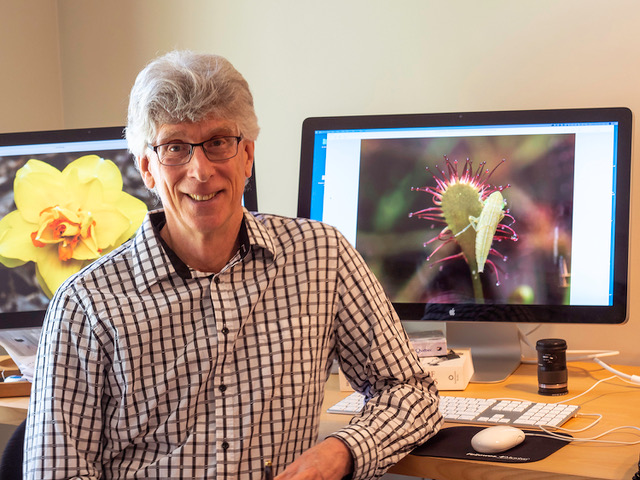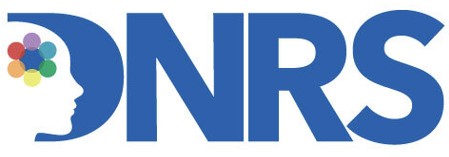Gilles used the Dynamic Neural Retraining System to recover Multiple Chemical Sensitivity, Food Sensitivities, Electric Hypersensitivity Syndrome, and Post-Traumatic Stress Disorder.
Gilles began to experience symptoms associated with limbic system impairment in 1986 after a “perfect storm” of stressors. He recalls, “Following extremely stressful events and medical treatment I suddenly found myself sensitive to smells, various foods and electrical fields. But it was still manageable and most of the time I was able to continue working and living a near normal life. It reached its peak between the year 2000 and 2005 where I had to stop working completely, was home bound and could not travel anymore. I remained highly sensitive until 2017 when I did the DNRS program.” Prior to finding the Dynamic Neural Retraining System (DNRS), Gilles had visited numerous doctors and specialists, trying to find the solution to his symptoms. “First I saw several MDs, then I saw some ear, nose and throat specialists, allergists, neurologists, and psychiatrists. I tried various medications. I also saw physical therapists, naturopathic doctors, psychologists, and massage therapists. I was desperately looking for help, so I even saw a Shaman woman! I met with Reiki practitioners, healers, yoga teachers; I tried many meditation techniques. I saw chiropractors and osteopaths. I saw an Integrative Medicine doctor, too. I tried cognitive behavioral therapy, I tried biofeedback, I saw 3 different hypnotherapists, and many more practitioners over the years.”
Gilles found out about DNRS through a post he had read in an online social media forum. He describes what opened his mind to the perspective that DNRS offered, “At one point while I was trying various approaches to help myself, I noticed that when I believed that a therapy could help me it gave me hope and I immediately felt a little better. That was a first step in seeing that what I thought had an influence on my illness. Then, in my experiments with different types of meditation, I noticed that when I recalled a time when I felt good it would improve my condition. That was another element that made me shift my view. I went from the perspective of believing that things in my environment were entirely responsible for making me sick, to the realization that I was actually able to directly influence my health with my mind, both positively and negatively. So when I read someone’s post in a social media forum that mentioned DNRS, I was very open to the perspective it offered.”
Gilles recently announced that he has made a full recovery, and shared the inspiring details on our Community Forum:
Hello my dear friends,
In May 2017, just two years ago, we were all together in Sooke on Vancouver Island for a spectacular DNRS Training Seminar with Annie, Michelle and Kelly. Time flies. I hope you are all doing fabulously well.
For myself I haven’t had any issues at all with Multiple Chemical Sensitivity or Electromagnetic Sensitivity for these past 2 years. A complete victory! This of course has allowed me to progressively increase my participation with my family, my community, and my life in general. One month after our May DNRS Seminar I went to a 3-day meeting in Ottawa as a member of an International Organization. Although I have been a member for a long time I had not been able to attend the yearly Convention since 1988. So that was quite a leap! Well this year I am actually one of the organizers for our Convention, which is another big step in my participation level. I also began giving slideshow presentations about nature and environmental concerns in my area. Public speaking is something I had stopped doing completely 20 years ago. Basically I got my life back – I’m feeling active and well. Plus it keeps getting better.
My DNRS practice is well integrated by now. Once in a while I do few rounds of the practice steps as soon as I notice myself operating from an old pattern. I catch this very early and I just don’t let it become a problem. I practice when needed. Or sometimes just for the added wellness and happiness. Life is good.

For many, typical forms of treatment for these conditions have focused on detoxification, nutritional supplements, and avoidance. Gilles writes about the shift in perspective he took while embracing the DNRS program:
Nicolaus Copernicus did not invent anything. Planets had been moving around the sun for a long time before he was born. He simply reorganized our perspective and created a heliocentric paradigm to explain what had been observed for centuries. Before Copernicus, the earth was considered to be stationary and at the center of the universe. All celestial movements had to be explained around that geocentric view. As we progressed in identifying planetary movements in the sky, it was becoming increasingly complex to keep the earth centered model, but it was not really reconsidered until Copernicus introduced his revolutionary idea to explain all observed celestial movements. He pulled out the Earth from its central position and instead replaced it with the sun. All celestial movements fell into place with ease. There was much resistance at first, but eventually it became widely accepted, and today the earth-centered paradigm is seen as a strange belief from the middle ages.
People suffering from environmental illness have been observed for a long period of time. An expanding number of people are suffering from chemical sensitivity, electrical sensitivity, food sensitivities and many other related illnesses such as Chronic Fatigue Syndrome/ME or Fibromyalgia. In the alternative and functional medicine community, the view has been that we live in a toxic world and the solution to these problems is to detoxify the organism and to avoid further intoxication. This usually translates into one or several detoxification protocols plus a strict behavior of avoidance (staying away from chemical smells, various foods, electrical equipment, cell phones and computers, etc.) often leading to a life of loneliness, away from social life and even from family.
Some success in treating EI (Environmental Illness) has propelled this type of approach to the center of the therapeutic model for people suffering from EI. Additional modalities also include exercise, meditation, cognitive-behavioral therapy, acupuncture, etc. All of those are certainly useful but it does not address directly brain damage associated with EI. Specifically Limbic System Impairment is simply seen as an unfortunate consequence of EI, but not a causing or a facilitating factor. Dealing with related symptoms is perceived as a peripheral issue with solutions offered just as a coping strategy to make life less arduous, but not as an essential core issue. Annie Hopper has changed all of that. She is putting limbic system impairment at the center of EI recovery. Within her DNRS (Dynamic Neural Retraining System) revolutionary paradigm it is not so much the environment that keeps people sick but rather the exaggerated response of our limbic system to minute amounts of toxic elements that should not normally cause any significant symptoms. Retraining and normalizing the impaired limbic system through self-directed exercises in neuroplasticity puts everything back in place and health comes back naturally.
This is not to say that a healthy lifestyle is useless, nor that toxicity does not exist in our environment. It does matter and there is no denying that our environment provides plenty of toxic material. It is often what made the EI sufferers sick to begin with. But at some point something went awry with their limbic system and the brain reaction itself becomes an even bigger problem. Recovering completely without correcting this amplified excessive response to the environment is difficult, if not impossible for many. This new paradigm offers not only hope for desperate people for whom nothing seems to work, but it clearly offers solid long-lasting results, sometimes spectacular and seen as almost miraculous. Best of all, the DNRS practice is totally self-directed and simple to do on a daily basis. I call it a revolution because it offers a completely different perspective on EI and therefore brings different solutions to these issues. This is why I like to say that Annie Hopper is the Copernicus of Environmental Illness.

